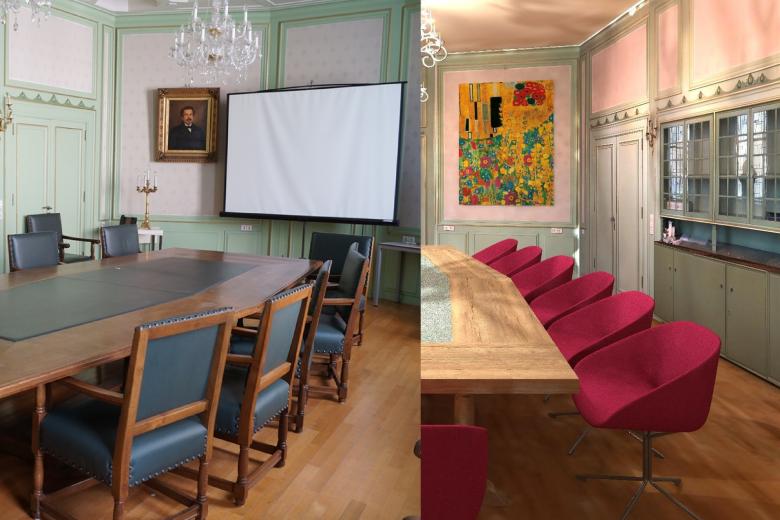OettiGate: voldoende politieke controle over zijn promotie?
De Duitse commissaris Guenther Oettinger is deze week geconfronteerd met een hoorzitting in het Europees Parlement met betrekking tot zijn promotie tot de budget en human resources portefeuile. (Engelstalige blog)
While his appointment is more than controversial, the hearing merely amounts to a shortened “exchange of views”, which can be seen as critical with regard to the EP’s political control function vis-à-vis the European Commission. The new year comes with a new Commissioner for budget and human resources. On Monday, 9 January, the German Commissioner Guenther Oettinger faced hearings in the European Parliament regarding his promotion to the new portfolio, taking over for resigning Commission Vice-President Kristalina Georgieva.
Oettinger, who before was responsible for the digital economy portfolio, has been heavily criticized in the last two months for making questionable statements about, inter alia, women, Chinese people and gay marriage during his speeches as well as for using a lobbyist’s private plane to fly to an official meeting in Budapest in May. In the light of these controversies, also his promotion to take over an important portfolio such as the budget and human resources one has stirred up some criticisms. Last week, on 5 January, nine MEPs published a letter addressed to Commission president Juncker, asking him to “reconsider [his] decision” to promote Oettinger to such an important position, because it would “send the wrong message to European citizens who expect holders of high authority to lead by example and to respect principles of democracy”.
On Monday evening, MEPs from the budget committee, the budgetary control committee and the legal affairs committee held an “exchange of views” with Oettinger to question him about his transfer to the budget and human resources portfolio. While new commissioners are normally subject to a three-hour hearing, including an approval vote, in the EP, this will not be the case for Oettinger following the model of when Latvian Commission Vice-President Valdis Dombrovskis took over the euro and social dialogue portfolio of departing British Commissioner Jonathan Hill earlier last year. As both Dombrovskis and Oettinger were sitting commissioners who took over a new portfolio, the procedure was a bit different and did not include a vote. Instead, the committees will draft a joint evaluation letter which will be sent to the EP President and the political group leaders and discussed by the latter on Thursday, 12 January.
Legally, it is not possible for the EP to prevent Oettinger’s appointment to the new portfolio. Only the Commission President can ask individual Commissioners to resign (art. 17(6) TEU). The European Parliament can only dismiss the Commission as a whole (arts. 17(8) TEU and 234 TFEU), meaning that they would either have to successfully carry out a motion of censure against the entire Juncker Commission or at least convincingly threaten the Commission President with such a possibility in order for him to withdraw his nomination. Neither scenario seems very likely. Nevertheless, the hearing still represents an opportunity for MEPs to publicly scrutinize Oettinger and his behavior. The question is, however, whether such a shortened exchange of views can be seen as amounting to the same tool of political control as a three-hour grilling followed by a vote.
According to POLITICO, the European Parliament is currently discussing a change to its rules of procedures to provide for a vote where there is a “substantial portfolio change during the Commission’s term of office”. This might not be such a bad initiative after all. In times of rising Euroscepticism and growing mistrust towards political office-holders, a softer handling of the new Commissioner for budget and human resources (who will amongst others be responsible for gender equality in Commission recruitment, despite his arguably sexist remarks) can be easily be misconstrued as yet another instance of EU elites taking decisions without any decisive input by democratic representatives. Moreover, the possibility of a vote of investiture also for the switching of portfolios would also reinforce the European Parliament’s role vis-à-vis the European Commission, and especially its President, and be a sign that the latter is not free from (democratic) constraints when it comes to reshuffling his college mid-term. After all, the EP’s political control function should not only extend to the question of who sits in the Commission in general but also to the question of whether or not they are deemed the appropriate candidate for a certain portfolio.
Published on Law Blogs Maastricht
-
De bescherming van de klokkenluider van D.C. is wassen neus
De impeachmentprocedure tegen president Trump is volop in het nieuws. De klacht van de klokkenluider over het gebeuren rondom de gunst die Trump vroeg in een kwestie rondom zijn politieke tegenstander Biden in een telefoongesprek op 25 juli 2019 met de President van Oekraïne staat daarbij centraal...

-
Jam v. International Finance Corporation. Het U.S. Supreme Court over de immuniteit van een internationale organisatie
Op 27 februari jl. deed het US Supreme Court een interessante uitspraak over de immuniteit van een internationale organisatie. Het gaat om de International Finance Corporation (IFC), een onderdeel van de World Bank Group. 184 staten, waaronder India en de VS zijn aangesloten. Deze organisatie...

-
Blog van de decaan aflevering 15: opening van de bestuurskamer en de alumniwand. En: help mee om een naam te geven aan onze onderwijsgroepskamers!
Gisteren werden onze Bestuurskamer, gerestyled naar een ontwerp van Margarita Gaier, en de Alumniwand feestelijk geopend. Binnenkort zullen onze onderwijsgroepskamers van een naam worden voorzien: iedereen wordt gevraagd om mee te helpen bij de keuze van de namen.
